Index
Overclocking
Point of View / TGT je pushed its GTX 590 Ultra Charged from reference 607MHz to 692MHz for the GPU.
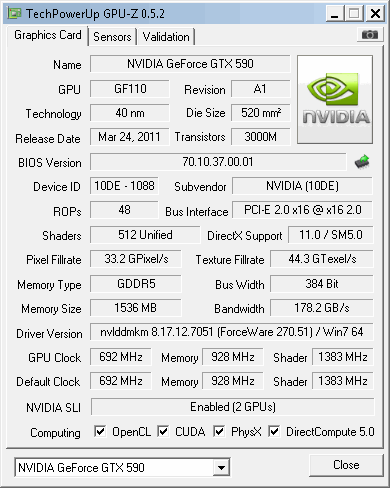
The factors that may make overclocking more difficult are thermals and GTX 590’s voltage. Note that Nvidia suggests water cooling for more extreme clocks. Air cooling is of course a cheaper solution and thus most partners use that, although several non-reference coolers have been announced.
Since we’re talking about an air cooled card, we were quite pleased with TGT’s overclock. Looking at other GTX 590 overclock results, it’s pretty clear that not all GTX 590s will run at 690MHz or higher, although some may be pushed beyond 750MHz. Thus, if you’re lucky, you may get a card with a chip that will support all your overclocking desires. GTX 590 has limited overclocking potential, at least until overvoltaging and better cooling come into play. Our test GTX 590 UC ran at 962mV while most other GTX 590s feature lower voltages.
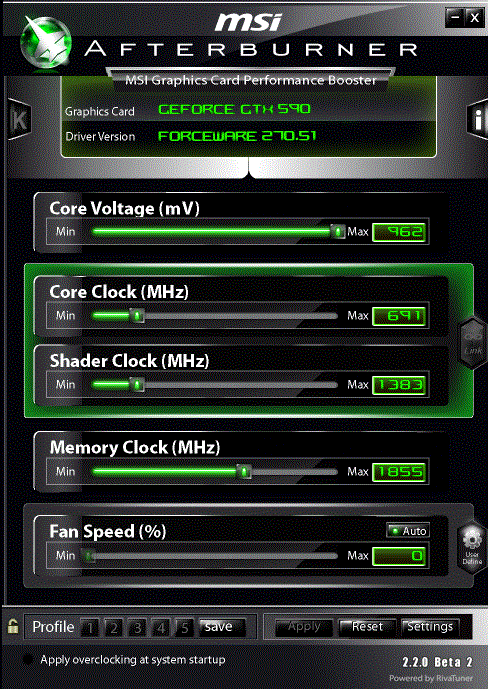
The picture below shows Gainward's reference GTX 590 card's voltage.
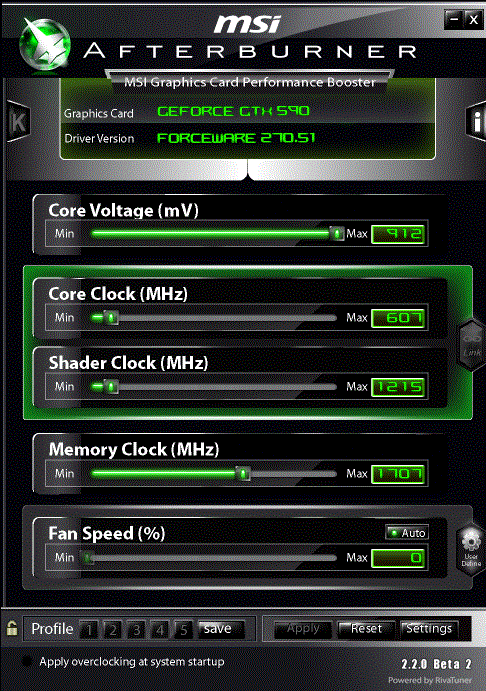
All PoV/TGT GTX 590 UC cards have been meticulously tested before being branded UC, and they’re guaranteed to run at 692MHz for the GPU. We attempted to overclock it further, and it was a breeze. We pushed the GPU to 740MHz but we couldn’t complete all the tests beyond 725MHz.
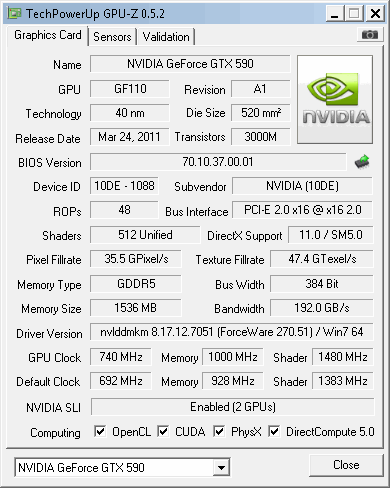
TGT’s factory overclock will provide maximum 12-14% better results compared to reference GTX 590. Further overclocking brought about a 2% performance increase in gaming tests.
TGT GTX 590 Beast will soon hit the shelves and we hope that this water cooled card will be ready for extreme overclocking.
Thermals and Noise
Reference GTX 590’s GPU hits 88°C during gaming. Despite the overclock, GTX 590 UC’s thermals ended up pretty much identical to the reference card. GTX 590 UC’s fan can be heard but it’s not too loud.
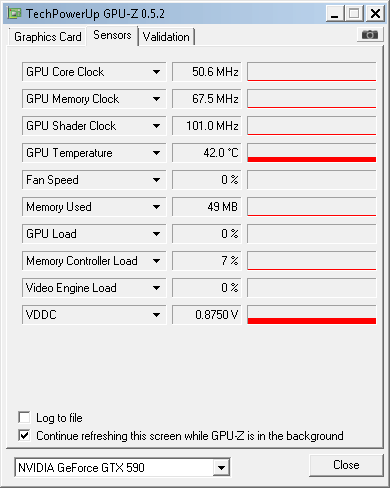
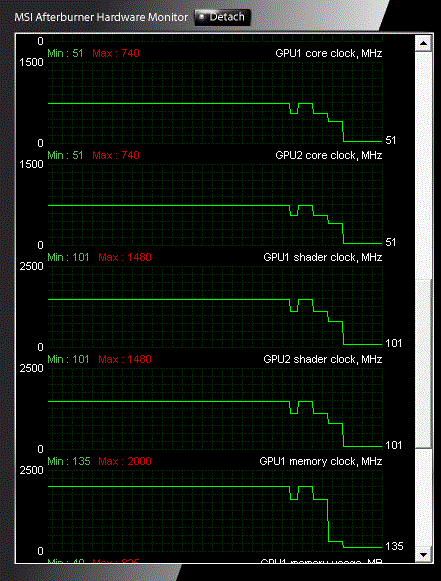
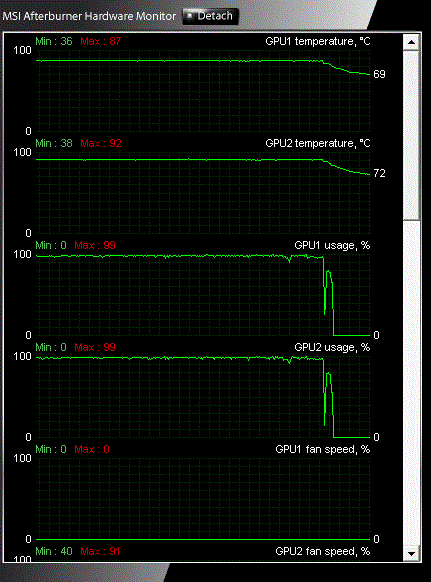
Our test rig drew about 60W more with GTX 590 UC than with the reference GTX 590.



